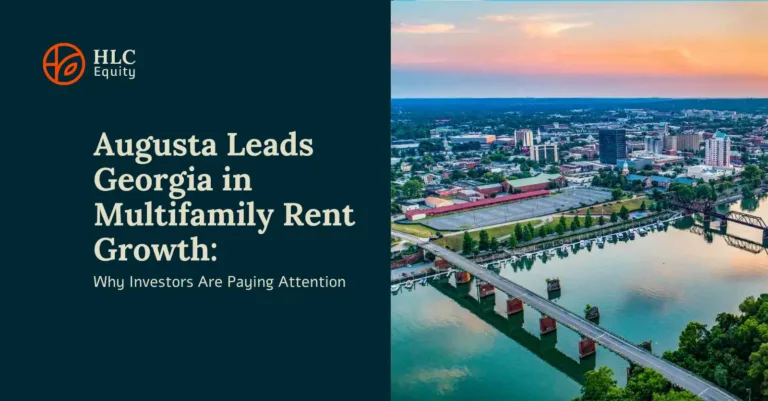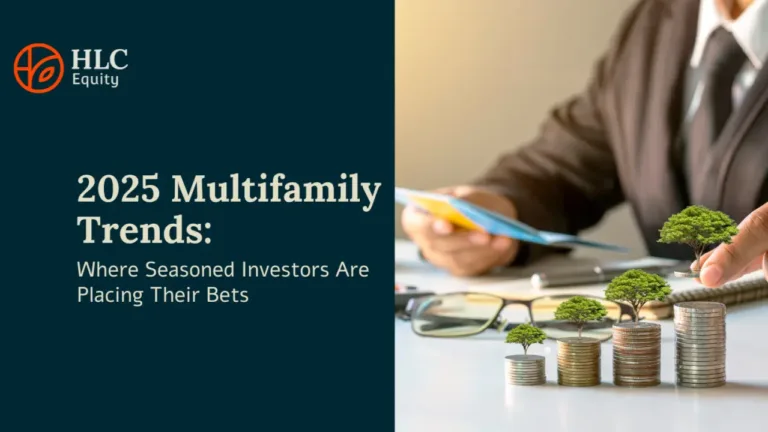As a real estate owner and operator, people are frequently surprised when they find out that I also make passive LP investments with certain reputable real estate investment sponsors. The reasoning for this is simple:
- I can’t be everywhere at every moment. The real estate sponsors that I invest with focus in investment areas in which our company is less active. Whether it be a different real estate sub-sector, geographic focus, or overall different strategy, investing with trusted sponsors allows portfolio diversification while affording me the most valuable resource of all—time.
- Finger on the pulse. Some people have asked me, “as an active real estate investment manager, how can you invest with competing real estate groups? You are okay paying them fees, and helping them?” My answer is always– YES (!), YES (!), and YES (!). From my standpoint, I am able to learn from other owners/operators, and I gain market intel through their operations while earning passive income and a return on capital. Warren Buffet is known from owning stock in companies that are competing with his portfolio holdings. Why? Because he gains market knowledge along the way. And if I am helping other sponsors while doing so, then all the better!
Now that we have established why I chose to passively invest alongside other real estate sponsors; I have also been asked what it is that I look for in groups that I passively invest with. Let me premise by saying that when passively investing, I look for it to be just that—PASSIVE. If I can hit the 4 core criteria I list below, then I do not get involved in the deal minutia whatsoever. I have no need to ask detailed questions regarding the specific deal assumptions and metrics because I am investing passively and believe in the sponsors. With that said, if the deal risk/reward profile meets my investment goals and hits the following criteria, I will invest:
- People: It should go without saying, but the people that I am dealing with is #1. That does not just mean that they are nice and honest individuals, which should go without question. I look at the entirety of the group. Has management been able to assemble and retain a group of highly professional and ethical individuals over the span of decades? Do they have a reputation of doing the right thing when the going gets tough? Do their values align with my values? That’s a group that I want to be invested with.
- Track record: I am less interested in seeing double digit IRR metrics over the last 10 years. This is especially the case given that the overheated economy of the last decade has allowed every owner/operator to look good with vanity return metrics, as skyrocketing valuations hid major operational flaws. I am interested in seeing how a firm has been able to assemble a solid long-term portfolio over the span of decades, and through several economic downturns. How did the firm do during the Great Recession of 2008? How did they survive and thrive through the toughest recession since the great depression, and more importantly, have they been around long enough to show that they have weathered several economic cycles?
- No “Operating Partners”: The term Operating Partners is a relatively new term in the real estate business, which was primarily brought on by groups that do not operate real estate, but rather aggregate investors to invest with the actual real estate owners/operators (AKA “Operating Partners”). While frequently partnerships may involve one group who serves as the Operating Partner, I will only invest into groups who have significant real estate operating and ownership experience. In this day and age, investors can be direct with the actual owners/operators of real estate. This was the catalyst for launching HLC Direct. I want to invest with groups that have exposure to what is happening at the property on a daily basis. Nothing replaces the experience and knowledge that comes with directly owning and operating real estate for decades.
- Skin in the Game: This item cannot be overemphasized. Sponsors in solid deals with credibility have their own capital at risk along with everyone else, period. Acceptable skin in the game generally ranges between 10-20% of the total equity, depending on deal size.
With the democratization of investment platforms, wonderful opportunities have been created to give access to institutional quality investments for everyday investors. At the same time, I am concerned that investors are frequently lured into highly risky investments with promises of unrealistic double digit returns by unseasoned sponsors in a historically low interest rate environment. In my experience as a private passive investor, sticking to the four criteria that I lay out above has produced strong passive investment results over the long term.
Real estate sponsors can earn and learn while investing with other sponsors, and I am happy to do so. Not only that, if I can help other owners/operators succeed, then all the better. I’ll even go a step beyond that– reach out to us privately, and I will give you the name of one of the sponsors that I have passively invested with… ir@hlcequity.com


